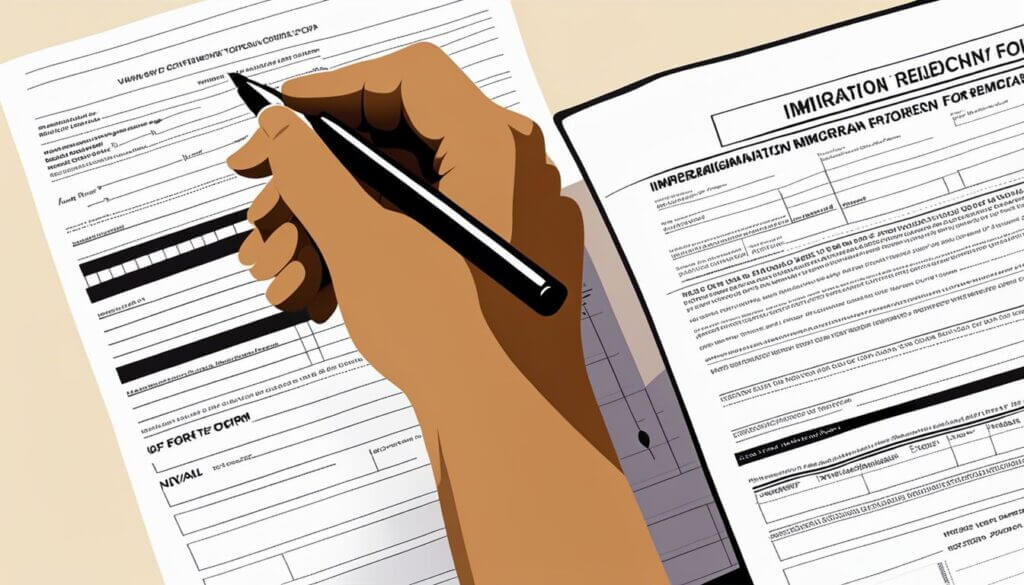Seeking a safe and stable life in the United States is a fundamental right, especially for those who have suffered the hardship of domestic violence. Fortunately, the Violence Against Women Act (VAWA) offers an avenue of hope.
Understanding the process of applying for permanent residency through VAWA is crucial, and you may be wondering “how long does VAWA residency take?” or how you might prepare for the interview for residency through VAWA. In this article, Jaskot Law provides you with helpful tips for navigating this important procedure.
What happens after the VAWA petition is approved?
Once the VAWA petition (Form I-360) is approved, the applicant takes a crucial step toward obtaining permanent residency. This is a significant moment, since it may now be possible to apply for an Adjustment of Status (Form I-485) to become a lawful permanent resident.
As in any migratory process, there are different aspects that must be taken into account before embarking on this path. From the steps to apply for permanent residency through VAWA to potential obstacles, understanding these facts is essential.

How long does VAWA residency take?
The time it takes to obtain permanent residency through VAWA can vary depending on the USCIS caseload, the complexity of the applicant’s individual situation, and the accuracy with which the necessary documentation was completed and submitted.
After approval of the VAWA petition, the person may be eligible to apply for permanent residency, but the time to do so may vary depending on two cases:
- In cases where the applicant is the spouse or child of a U.S. citizen, the application for adjustment of status may proceed immediately upon approval of the VAWA petition.
- If the applicant is the spouse or child of a lawful permanent resident, he or she may have to wait for a visa to become available depending on the preference category and priority date, which may lengthen the waiting time.
It is important to know which category your application for permanent residency through VAWA would fall into, thereby increasing the likelihood of success in your case. If you have any questions, contact the team at Jaskot Law, which will guide you through every step of the process.
Grounds of inadmissibility for permanent residency under VAWA
Before navigating the application process and keeping an eye on how long does VAWA residency take, it is important to know what factors may prevent you from obtaining this remedy. Some of the grounds for inadmissibility are the following:
- Health problems: certain medical conditions, such as those that pose a threat to public health.
- Criminal record: if you have a history of certain crimes, this may affect your eligibility.
- Security and terrorism-related violations: any involvement in terrorist activities is a serious ground for inadmissibility.
- Public charge: if it is determined that you will be primarily dependent on the government for your livelihood, this may cause inadmissibility.
- Fraud or misrepresentation: any deception or misrepresentation in the application may be grounds for inadmissibility.
This is not an exhaustive list, so we recommend meticulously researching all the factors that can cause the denial of your VAWA visa. You don’t have to do it alone, the team at Jaskot Law can guide and advise you in everything you need.
Steps to apply for permanent residency through VAWA
The transition from VAWA petition approval to permanent residency application is a path that must be navigated with care and attention. The following are the key steps that applicants must follow to ensure a smooth transition:
| Approval of VAWA petition: Make sure that the VAWA petition (Form I-360) has been approved. |
| Status adjustment: Once the visa is available and the VAWA petition has been approved, file Form I-485 for adjustment of status. |
| Biomedical and medical examination: Complete the required medical examination, which must be performed by a USCIS approved physician. |
| Admissibility test: Demonstrate that you are not inadmissible under any of the categories established by U.S. immigration law. |
| Adjustment of status interview: Finally, you will likely be asked to attend an interview to confirm the details of your application and your eligibility for permanent resident status. |

Importance of the VAWA Residency Interview
The VAWA residency interview is a crucial component of the application process. This step gives immigration officials the opportunity to verify the authenticity of your application and to meet you in person.
Applicants should be prepared to answer questions about their relationship with the abuser, the abuse suffered, and their life in general in the United States. It is essential to provide honest and complete answers and submit all required documentation.
Conclusion
In summary, applying for permanent residency in the United States through VAWA is a process that offers a glimmer of hope for those who have suffered the tragic experience of domestic violence. The path from VAWA petition approval to permanent residency can be complex and often requires patience and determination.
With the information provided by the team of Jaskot Law team and careful preparation, especially for the VAWA residency interview and questions such as “how long does VAWA residency take?”, you will be able to move forward with confidence towards a brighter future.
Sources
Permanent Residence for Self-Petitioner VAWA | USCIS
Adjustment of Status (Form I-485)
Frequently Asked Questions
If my VAWA petition is denied, can I appeal the decision or reapply?
If your request is denied, you have the right to appeal the decision. Alternatively, you can correct the problems that led to the denial and reapply.
Is it necessary to have an order of protection to apply under VAWA?
No, it is not necessary to have an order of protection to apply under VAWA. Evidence of abuse can be presented in different ways, such as police reports, witness testimony, medical or psychological records, among others.
Can the children of the abused person also benefit from VAWA status?
Yes, children of the victim of abuse can be included in the VAWA petition and can benefit from this status, which also allows them to apply for adjustment of status to permanent residence.
What happens if I divorce my abuser before my VAWA application is approved?
Divorce does not necessarily affect your VAWA eligibility. You can apply for VAWA if the divorce was related to the abuse and if you file the petition within two years of the divorce.
Kemel stands out as a professional in writing and translating content for the Latin American market. With more than four years of experience, he began his professional career as a member of a research group, with which they dealt with various topics and wrote several scientific papers.


